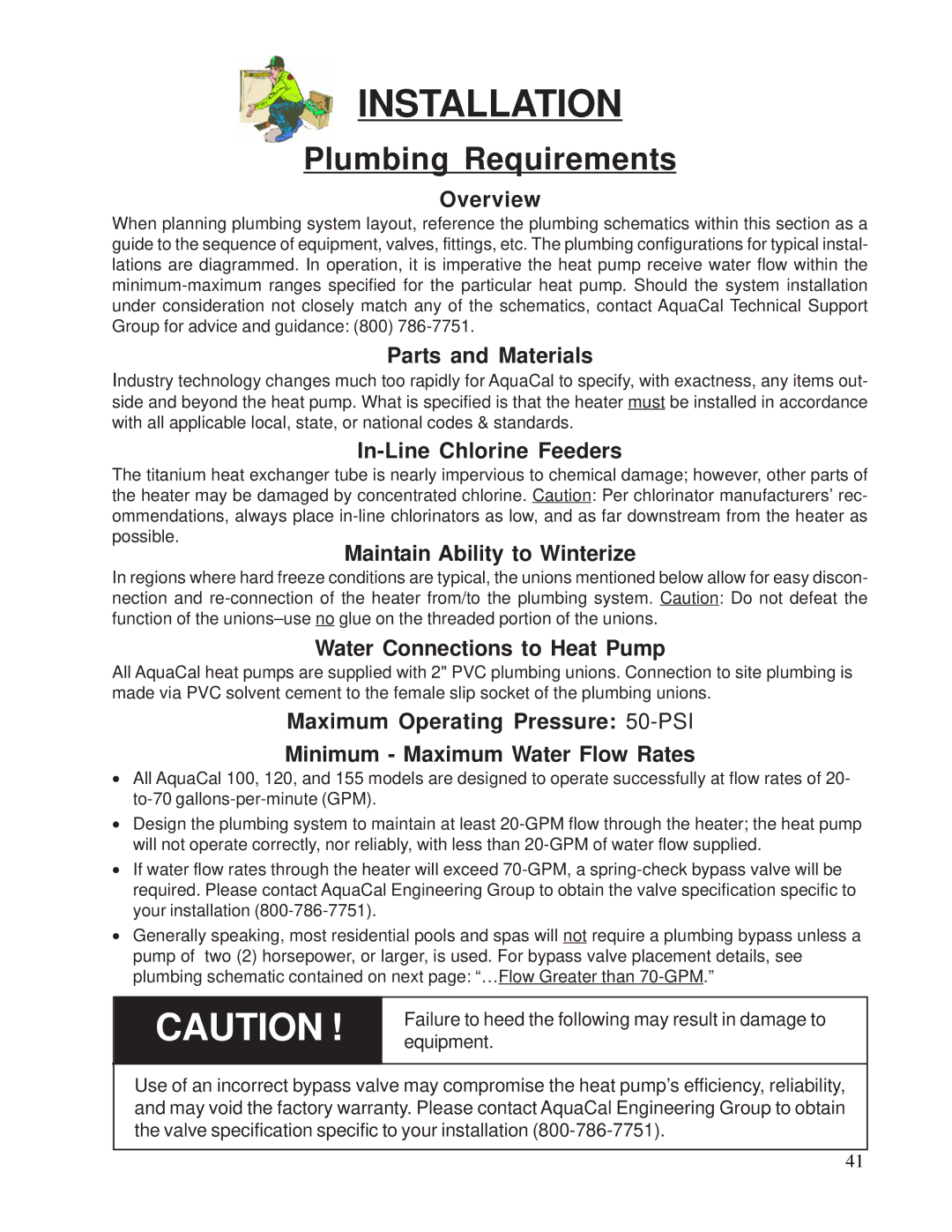120, 155 specifications
Aquacal 155,120 is a highly regarded pool heater known for its efficiency, reliability, and advanced technology. This product stands out in the competitive market of swimming pool heating solutions, making it a popular choice among pool owners and professionals alike.One of the main features of the Aquacal 155,120 is its high-performance heat exchanger, made from durable titanium. This material ensures resistance to corrosion and enhances the longevity of the heater. The titanium heat exchanger is designed to facilitate maximum heat transfer, providing rapid warming of pool water and ensuring a consistent swimming experience.
The units are equipped with a powerful compressor that utilizes advanced inverter technology. This technology enables the heater to adjust its output according to the pool’s needs, optimizing energy consumption and reducing operational costs. The inverter-driven compressor allows the Aquacal 155,120 to operate quietly, making it ideal for residential settings where noise could be a concern.
Aquacal has designed the unit to be user-friendly, featuring an intuitive digital control panel. This control panel allows users to easily monitor and adjust the temperature settings, ensuring that the water temperature can be maintained at a comfortable level. Additionally, this feature includes programmable settings to enable automatic heating schedules, providing convenience and energy savings for pool owners.
The Aquacal 155,120 is also known for its energy efficiency. With a high coefficient of performance (COP), this heater can deliver more heat output per unit of energy consumed compared to traditional heating systems. This efficiency contributes to a lower carbon footprint, making it an environmentally friendly choice for heating pool water.
Furthermore, the unit is designed with robust insulation, which minimizes heat loss and maximizes energy retention. This insulation helps maintain the desired water temperature for longer periods, reducing the need for frequent reheating and thereby lowering energy expenses.
In summary, the Aquacal 155,120 is an outstanding choice for pool owners looking for an efficient, reliable, and technologically advanced heating solution. With its titanium heat exchanger, inverter technology, user-friendly control panel, energy efficiency, and excellent insulation, this pool heater stands out as a top contender for modern pool heating needs. Whether for leisure activities or extended swimming seasons, the Aquacal 155,120 ensures a comfortable and enjoyable swimming experience.

